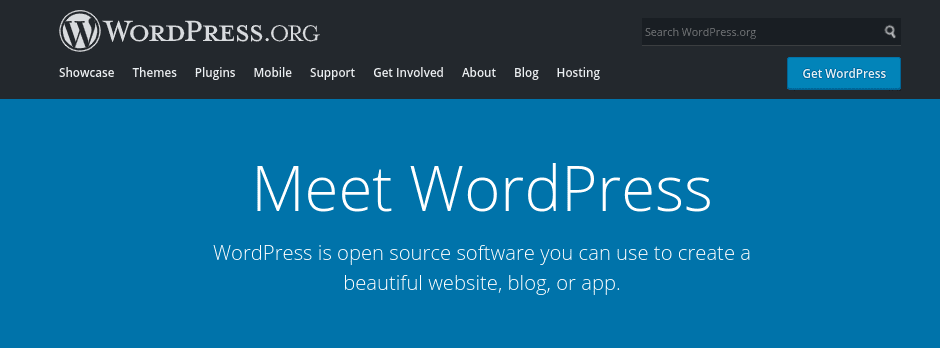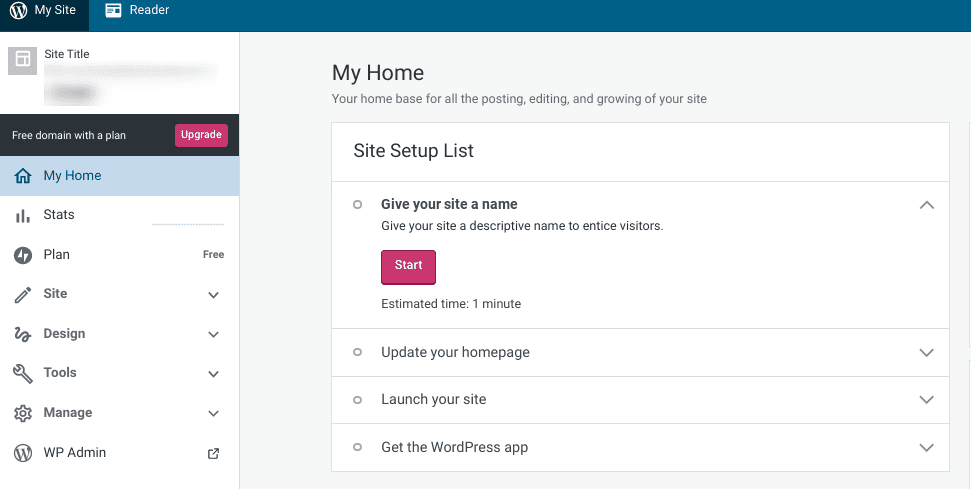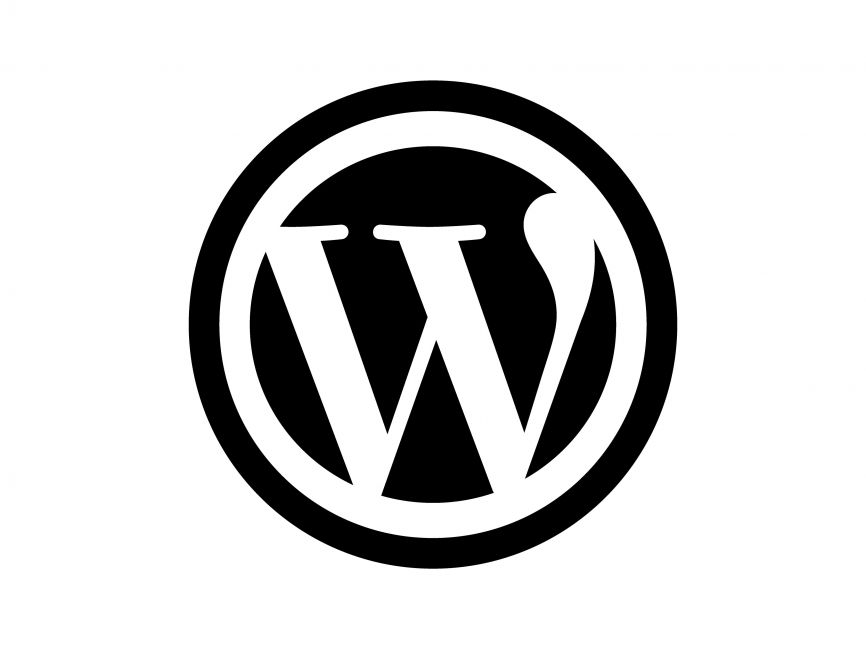If you’re thinking about starting a website, there’s a good chance you’re considering using WordPress. At this point, most people find out that WordPress.org and WordPress.com are NOT the same thing, and are left wondering which one they should use.
You’ll want to make sure you’re using the right platform, which means understanding the answer to the question: What is the difference between WordPress.com vs WordPress.org?

The main distinction between the two involves how your site will be hosted. However, there are also some features and functionality that you can only get with one platform or the other. That’s why it’s crucial to choose the appropriate solution for your site.
In this post, we’ll introduce you to both WordPress.com and WordPress.org. We’ll explain the major differences between the two, and help you decide which is the better option for your specific needs. Let’s get started!
In This Article 🔮
What Is WordPress.com? 🖥

First up, WordPress.com is a beginner-friendly hosted service that makes starting your own website as simple and straightforward as possible. With WordPress.com, your site’s hosting is taken care of for you.
There is no need to download any software when using this platform, nor do you have to purchase hosting or a domain name. WordPress.com is an all-in-one website building solution. All you have to do is sign up for an account, and you can create your blog, portfolio, or website in just a few clicks.
You can sign up for a free basic plan if you’re looking to create a very simple site. However, WordPress.com also offers you the option of a paid upgrade if you’re looking for more advanced features.
The Personal plan starts at just a few dollars per month and comes with a custom domain name included. If you opt for the free basic plan, on the other hand, your site’s URL will have “wordpress” included in the domain (i.e., “www.yourdomain.wordpress.com”).
WordPress.com handles all the hosting and management aspects for you, however, it isn’t without its drawbacks. This ease of use and efficiency comes at the cost of flexibility and customization options. That’s where WordPress.org comes into the picture.
What Is WordPress.org?💻
WordPress.org is developed by Automattic, the same company that owns WordPress.com. However, this version (often called ‘self-hosted WordPress’) is an open-source platform, enabling you to download the software and use it to build your website.
While WordPress.org is a bit more advanced, it is also incredibly user-friendly and easy to learn. Thanks to its visual editor, putting together a website is simple, whether you’re a beginner or an experienced developer.
Plus, you can do whatever you like with no restrictions – that includes installing add-ons like plugins and themes, adding your own custom code, and more.
[bctt tweet=”🐦 WordPress.org gives you total control over your site’s look and functionality. #WordPress” username=”thewpbuffs”]
If you go the self-hosted route, you’re also in full control of your site’s data and hosting. You can select whatever web host and plan you like and use your own custom domain name. Thanks to the platform’s popularity, many hosting providers offer easy one-click installation for WordPress users.
What Is the Difference Between WordPress.com vs WordPress.org? ⚖️
As we’ve mentioned, the biggest difference between WordPress.com and WordPress.org is the way hosting works. All websites need a hosting provider, which stores all the necessary files and data on its servers so the site can be accessed online.
WordPress.com provides you with built-in hosting, while with WordPress.org you’re responsible for purchasing a hosting plan and setting it up. This difference in hosting also results in a distinct experience when it comes to functionality and customization options.
With that in mind, let’s take a look at three other key differences between WordPress.com vs WordPress.org.
- Setup and Installation
- Flexibility and Customization
- Pricing
1. Setup and Installation
When you sign up for WordPress.com, the platform will already be set up. Therefore, you don’t need to go through as many installation and configuration steps as you do with WordPress.org.
Once you sign up for an account on WordPress.com, you can get your site started in just a few minutes. You simply enter your email address, name your site, and then choose from a selection of pre-made themes that will alter its appearance:

With WordPress.org, you’ll first need to download the software to your computer. Then you can install it on your web server, and connect it up to your domain and hosting.
Although this may sound complicated, in most cases your host will provide easy and quick ways to do this, so you don’t need much technical know-how. Plus, there are many tutorials and guides available online that can walk you through the process.
2. Flexibility and Customization
Another major difference between WordPress.com vs WordPress.org is in the platforms’ flexibility and customization.
With WordPress.org, you can choose from thousands of plugins that help you enhance the functionality of your website and add new features. You can also purchase and upload both free and premium themes, which can give your site new layout and style options.
Additionally, because WordPress.org is open source, you can also access, edit, and customize the back end code of your site. You can even create custom plugins and themes, if none of the existing options offer what you need.
If you’re not tech-savvy, you can easily hire a developer to do any of those tasks for you.
WordPress.com, on the other hand, doesn’t give you access to the WordPress Plugin Directory (unless you purchase a ‘Business’ or ‘eCommerce’ plan). You also can’t access or edit your site’s code or files.
You can choose your own theme, but you can’t upload your own, so you’re restricted to what’s available in the Theme Directory. In addition, the number of themes you can pick from depends on which plan you choose.
Therefore, you’re limited in how much you can customize your WordPress.com site, especially if you opt for the free version. Even on a paid plan, you won’t have the same level of control over your site’s look and functionality that you get from WordPress.org.
3. Pricing
When you’re looking to set up a new website, pricing is crucial. As we’ve touched on, WordPress itself is free. However, if you download the software from WordPress.org, you’ll also need to pay for hosting and a domain name.
Typically, you can get a domain name for around $10 to $12 per year, and entry-level hosting for as little as $5 per month. That makes the startup costs for getting a WordPress site off the ground pretty low.
However, you may also want to budget a little money for a premium theme and a few premium plugins, especially if you’re looking to build something more than a basic blog or portfolio site.

You can also sign up and create a website on WordPress.com for free. However, this means you will have WordPress ads included on your site, as well as a branded domain name. The premium plans range from $4 to $45 per month, which encompasses all you’ll really need to pay in order to keep your WordPress.com site going.
Frequently Asked Questions About WordPress.com vs WordPress.org 📋
At this point, you should be well placed to decide between WordPress.com and WordPress.org for your website. However, it’s important to have all the facts in place before settling on a platform, so let’s go over a few common questions:






